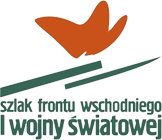As of 1867 Austro-Hungary had been a constitutional dual monarchy, i.e. consisting of two countries that were united by the monarch and several other institutions, such as for instance, the joint army. Galicia, as part of the first of the two countries, was a province with a rather vast autonomy, eventually established in 1873, with its own National Sejm (Parliament), and an advanced system of local authorities. The entire country enjoyed numerous civil freedoms, while Poles could hold highest office not only in the autonomous Galicia but also in the central authorities of the monarchy: since the middle of the 19th century until the outbreak of the First World War, three Poles held even the office of the Prime Minister of the Austrian government. Unlike in the Russian - and Prussian - occupied parts of Poland, the Polish language was not only not suppressed in the period preceding the outbreak of the Great War, but in fact it had a status of the official language! Polish education operated on all levels, including the Polish universities in Kraków and Lemberg. Polish cultural and political life also flourished, while many Polish activists from the Russian Partition, such as Józef Piłsudski and Roman Dmowski to name a few, found refuge in Galicia.
Therefore, the autonomous Galicia offered a true enclave of freedom for Poland. Although the poverty was enormous, thousands of people emigrated, the industry was developed only on a small scale, and the government institutions (apart from those determined by military reasons) steered clear of the entire province, nonetheless, the region became the forge of the experienced Polish cadres for the future independent Polish Republic and the centre of Polish national and independence activity: the true “Polish Piedmont” so to speak.
Therefore, the autonomous Galicia offered a true enclave of freedom for Poland. Although the poverty was enormous, thousands of people emigrated, the industry was developed only on a small scale, and the government institutions (apart from those determined by military reasons) steered clear of the entire province, nonetheless, the region became the forge of the experienced Polish cadres for the future independent Polish Republic and the centre of Polish national and independence activity: the true “Polish Piedmont” so to speak.


